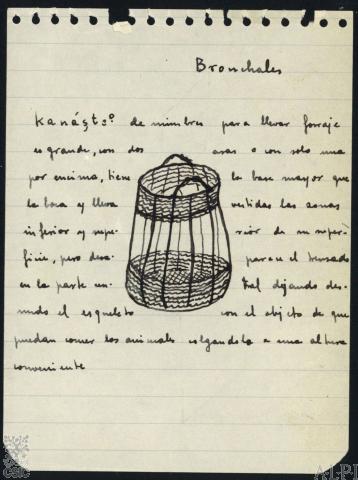Por virtud principal de su información fonética, el ALPI es como una especie de acta documental del carácter y fisonomía del habla popular de la Península en los años inmediatamente anteriores a la guerra civil. La honda conmoción producida por esta guerra en todo el país, y el movimiento de población ocasionado después por motivos económicos y sociales, habrán modificado sin duda alguna las líneas del ALPI, lo cual acentúa su interés como testimonio de valor histórico.
[ Mainly because of its phonetic information, the ALPI is like a sort of documentary record of the character and appearance of vernacular speech in the Peninsula during the years immediately preceding the Civil War. The deep upheaval wrought by the war in the entire country, along with the population movements that happened later due to economic and social reasons, will have doubtless modified some of the lines in the ALPI, which further increases its interest as historically valuable testimony. ]
(Navarro Tomás, 1975: 14)
 Despite the time that has elapsed and the other regional atlases that have been published, the scientific value of the ALPI continues to be beyond doubt. This is the case among other reasons because the Iberian Peninsula still lacks a general atlas similar to those that exist for other large European linguistic domains, a baseline atlas with which data collected later on in the same areas can be compared, and whose materials also allow for the comparative study of Iberian Romance varieties. It is true that the linguistic varieties of the Peninsula have evolved since the bulk of the surveys were conducted, and above all, the demographic and social conditions are also drastically different from those reflected in the ALPI data. However, for exactly this reason it is clear that the passage of time has not diminished the value of this atlas but rather has made it into ethnographic and linguistic documentary evidence, hence the basis of its scholarly interest
Despite the time that has elapsed and the other regional atlases that have been published, the scientific value of the ALPI continues to be beyond doubt. This is the case among other reasons because the Iberian Peninsula still lacks a general atlas similar to those that exist for other large European linguistic domains, a baseline atlas with which data collected later on in the same areas can be compared, and whose materials also allow for the comparative study of Iberian Romance varieties. It is true that the linguistic varieties of the Peninsula have evolved since the bulk of the surveys were conducted, and above all, the demographic and social conditions are also drastically different from those reflected in the ALPI data. However, for exactly this reason it is clear that the passage of time has not diminished the value of this atlas but rather has made it into ethnographic and linguistic documentary evidence, hence the basis of its scholarly interest



